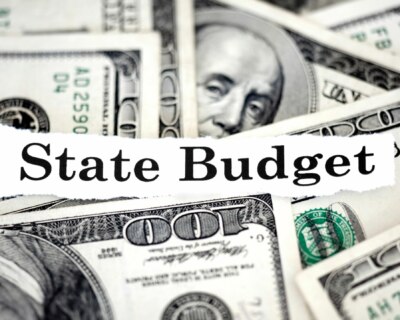New Nonpartisan Toolkit for Budget Reform
Led by Louisiana’s Noble Ellington, ALEC promotes “priority-based budgeting”
 NEW ORLEANS, La. – The American Legislative Exchange Council has released its “State Budget Reform Toolkit,” a plan for resolving fiscal shortfalls without increased taxation, raids of rainy-day funds, or reliance on federal funds. ALEC’s toolkit comes as Louisiana faces a projected $1.6 billion deficit for the 2011-2012 fiscal year and Governor Bobby Jindal must present a balanced budget by March 11, 2011.
NEW ORLEANS, La. – The American Legislative Exchange Council has released its “State Budget Reform Toolkit,” a plan for resolving fiscal shortfalls without increased taxation, raids of rainy-day funds, or reliance on federal funds. ALEC’s toolkit comes as Louisiana faces a projected $1.6 billion deficit for the 2011-2012 fiscal year and Governor Bobby Jindal must present a balanced budget by March 11, 2011.
ALEC is the nation’s largest nonpartisan association of state legislators – with 2,000 members and one third of the total – and it advocates for Jeffersonian principles of free markets, limited government, federalism, and individual liberty. Their proposal, prepared in collaboration with six other policy research and advocacy organizations, outlines “priority based budgeting.”
“Priority based budgeting means state officials and citizens must first determine the core functions of government,” write Leonard Gilroy of Reason Foundation and Jonathon Williams of ALEC. By contrast, they claim, the prevailing approach “focuses almost entirely on inputs (more money). Building budgets the conventional way virtually assures overspending since there is little, if any focus on efficiency, effectiveness, or outcomes.”
The Evergreen Freedom Foundation, a non-partisan policy institute based in Washington State, assisted with the project and prepared this video clip to explain priority based budgeting (five minutes).
Each one of the report’s seven budgeting tools includes a corresponding policy recommendation. For example, once legislators “define core governing principles” they are called to either abolish programs that do not fit or assign measurable outcomes to those that do.
The report also includes 13 measures to control costs in fiscally difficult times. These include state hiring freezes and delays to automatic pay increases, restructuring of government employee retirement benefits, and the establishment of a privatization and efficiency council.
Louisiana state representative and ALEC national chairman, Noble Ellington (R – Dist. 20) endorses priority based budgeting, and he particularly seeks budget transparency. Recently, the founder and CEO of the Institute for Truth in Accounting, Sheila Weinberg, described Louisiana’s budget as a “political document,” and Ellington agrees that it is too difficult to understand. Ellington also believes state legislators have allowed spending to grow too fast, so he supports a spending limit beyond the balanced budget requirement.
“It’s very important that government spending not be able to outpace growth in private sector activity,” he says.
Washington State implemented a priority based budgeting system in 2003, also known as the Priorities of Government Budget Approach. Each budgeting session begins with four questions to help guide the legislature’s decision.
- What are the results citizens expect from the government?
- What strategies are most effective in achieving those results?
- How should we prioritize spending to buy the activities that are most critical to implementing these strategies?
- How will we measure progress?
Washington’s experience, however, suggests priority based budgeting, at least the aspects they adopted, was far from a cure all. Although enacted almost a decade ago, the state still faces a projected $5 billion budget deficit for 2011-2013.
Fergus Hodgson is the capitol bureau reporter with the Pelican Institute for Public Policy. He can be contacted at fhodgson@pelicanpolicy.org, and one can follow him on twitter.
.
Tags: Evergreen Freedom FoundationInstitute for Truth in AccountingNoble EllingtonPriority Based BudgetingReason FoundationState Budget Reform ToolkitThe American Legislative Exchange Council





